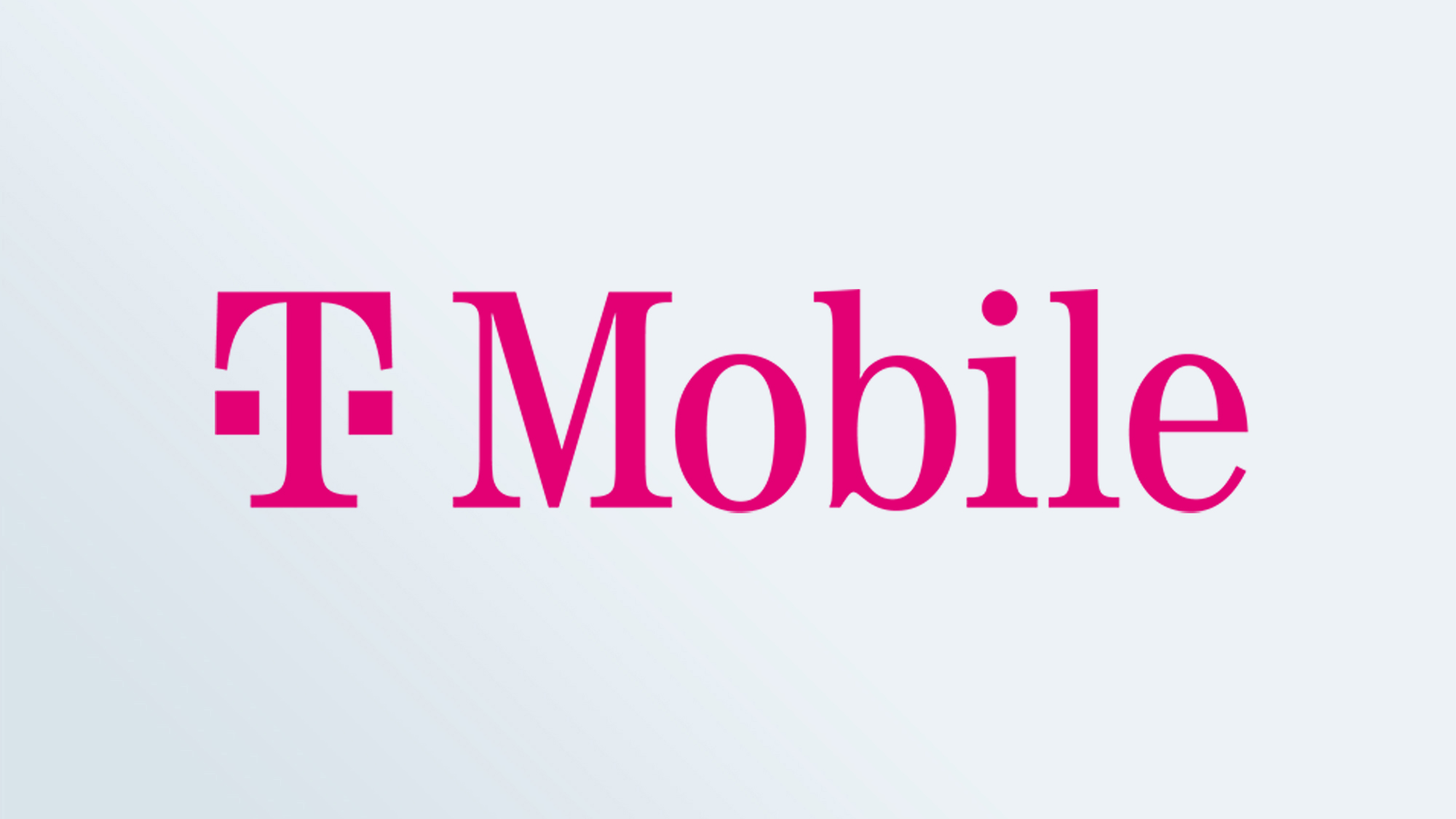Best international phone plans in 2025 — what travelers need to know
Heading overseas? Find out what your cellphone provider charges if you use your phone

If this is the year you plan to head overseas, make sure you're taking one of the best international phone plans on your trip. That way, you can make sure you stay connected no matter where you are — and without racking up a lot of roaming charges just for using your phone.
You no longer need to track down a SIM card for the country you visit, as all of the major U.S. carriers include some sort of travel perk when you sign up for the best cell phone plans. The trick is to know what your current carrier offers, whether it's through your current wireless plan or via an add-on you can purchase specifically for your trip. And if you find those options limited, I can point you toward a plan that will make sure you're covered when you're overseas.
That's because I've spent the past decade looking at what different phone carriers charge for monthly phone service. Part of that includes looking up the perks associated with each plan — including international coverage aimed at travelers. I've also done a fair built of travel myself, taking the opportunity to try out the best international phone plans when I've been overseas.
T-Mobile has long touted its reputation for including travel perks with its unlimited plans, but AT&T and Verizon have stepped up their own offerings. We'll explore what travelers can expect from each carrier. I've also included some alternative carriers who have some international travel options of their own to consider.
When I look for the best international phone plans, I want something that lets me make calls and browse the web when I'm in another country. And I want to know what fees are involved above and beyond what I'm already paying for my monthly service. Different plans might provide coverage in specific countries, and how long you plan on traveling could also impact your choice of plans. Your method of travel — be it by plane or cruise ship — also affects which plan is best for you.
Here’s a look at the travel policies and perks for the three top U.S carriers along with information on Google Fi, which offers a plan that definitely appeals to frequent travelers.

I'm the managing editor for mobile at Tom's Guide, where I've been working since 2015. In that time, covering smartphone plans has been a big part of my job. Prior to Tom's Guide, I've been writing about technology since 1999, so I know how rapidly things can change in this business — especially what phone carriers charge for their service. When I'm not covering phones, wireless carriers and other technological bits and bobs, I'm cooking, thinking about baseball and soccer and, yes, traveling, which includes plotting out excuses to see the rest of the world.
T-Mobile international phone plans

T-Mobile has shed some of its plans, though the good news is that most of the remaining options provide some benefits for overseas travel. Subscribe to Go5G, Go5G Plus or Go5G Next, and you enjoy unlimited data and texting in more than 215 countries around the world. If you want to place or receive calls, you’ll be subject to the local rate depending on where you want to go. You don’t need to notify T-Mobile of your travel for your overseas benefits to kick in.
T-Mobile Go5G Plus Plan | Unlimited Data | $90/month
T-Mobile's Go5G Plus plan has the edge over the cheaper Go5G option if you're taking travel benefits into consideration. The $90/month Plus plan gives you 15GB of data when you travel in Mexico and Canada, compared to 10GB for the $75 Go5G offering. In addition, Go5G Plus subscribers enjoy texting and Wi-Fi on any flight where internet is available. Even better, you can use your data in 215-plus countries at no extra cost. The first 5GB of data you use use will be high-speed data (with 5G speeds supported where available). Go5G subscribers only get high-speed data in 11 European countries; otherwise, data speeds are capped at 256 kbps.
Travel perks in current plans: As part of T-Mobile's Beyond Connected program, data speeds reach 256 kbps when you're overseas. If you subscribe to the standard Go5G plan ($75 for a single line) and you're in one of 11 European countries, you can enjoy 5GB of high-speed data every month, thanks to a partnership with T-Mobile parent Deutsche Telecom.
The perk gets better when you upgrade to Go5G Plus, which starts at $90/month for one line of data). That plan treats you to 5GB of high-speed data in 215 countries. For that reason alone, Go5G Plus is the better option for frequent travelers, even if it costs $15 more each month than the standard Go5G offering.
Go5G Next, T-Mobile's most expensive plan at $100/month for a single line, has the same travel benefits as Go5G Plus, but adds the ability to upgrade your phone every year. If that's not important to you, stick with Go5G Plus and pay $10 less each month on your wireless bill.
T-Mobile customers can take advantage of free Wi-Fi on American, Delta, Alaska Airlines and United flights. Go5G Plus subscribers get full texting and Wi-Fi with streaming during flights, where wireless is available. If you opt for Go5G, you're covered on four flights per year with full streaming, plus unlimited texting; after those four flights, you can stream one hour of video. Delta SkyMiles members also get free Wi-Fi on domestic U.S. flights courtesy of T-Mobile — even if they get their wireless service from another carrier.
In Mexico and Canada, T-Mobile allows you to use up to 10GB of data if you're a Go5G customer; speeds are slowed to 128kbps after that. Go5G Plus members enjoy 15GB, with speeds slowing to 256kbps if you use more than that amount.
T-Mobile includes travel benefits in two of its senior plans, with identical travel perks between the $100 Go5G Plus 55 option and the $120 Go5G Next 55 plan. (Note that those monthly prices cover two lines of data; one line of either Plus or Next cost $70 and $80, respectively.) Travel perks include high-speed data and text when you travel abroad, plus unlimited in-flight connectivity. When you travel to Canada or Mexico, you get 15GB of high-speed data. Both plans also include a year's membership to AAA for road travel in the U.S.
If you opt for T-Mobile's lower cost Essentials unlimited plan, you'll get 2G roaming in Canada and Mexico, but have to pay for data elsewhere.
Trip-specific passes: T-Mobile offers International Pass options for travelers who want high-speed data during lengthier stays overseas. A 5GB International Pass gives you that much high-speed data along with unlimited calling for 10 days. It costs $35. T-Mobile's $50 International Pass increases high-speed data to 15GB and extends the length of the pass to 30 days. The carrier also offers a $5 daily pass that gives you 512MB of high-speed data, and unlimited calling between the 215 or so Simple Global destinations.
Cruise rates: Pricing on cruises will vary according to which cruise you’re taking. You can check T-Mobile’s site to see what your pricing will be.
Verizon international phone plans

Verizon phones generally work all over the world, especially if you've got a phone built in the last few years. But where you travel significantly influences how much you’ll have to pay. As for which is the best Verizon phone plan for travelers, that all depends on how frequently you go overseas. There's a clear choice for regular globetrotters, but Verizon's less expensive offerings allow you to tack on travel benefits for a little bit extra on your monthly bill.
Verizon Unlimited Ultimate | Unlimited Data | $90/month
Verizon's Unlimited Ultimate plan offers the most benefits for world travelers. Verizon promises "full international connectivity," meaning you'll be able to use talk and text for free when overseas; you also get 10GB of high-speed data every month that you can use in other countries. Unlimited Ultimate is Verizon's most expensive plan, so unless you take frequent trips, you may be better served by the cheaper Unlimited Plus ($80/month for one line) or Unlimited Welcome ($65/month) options. That's because both plans have access to a $10/month Travel Pass add-on that gives you three days of talk, text and data when you're overseas. Verizon lets you add and drop the Travel Pass at will, so you can save the $10 monthly fee when there's no travel scheduled in your near-term plans. Additionally, people with multiple lines can mix and match their unlimited plans, so the person who travels can pay for Unlimited Ultimate while other lines opt for the cheaper plans.
Travel perks in current plans: Of Verizon's three unlimited plans, the best for frequent travelers is the Unlimited Ultimate option, which lets you use talk and text in other countries just like you would in the U.S. You also get 10GB of high-speed data to use overseas every month.
Unfortunately, Unlimited Ultimate is Verizon's most expensive plan, costing $90 a month for one line. (And that's after a discount for enrolling autopay.) There are cheaper options — Unlimited Welcome and Unlimited Plus — that include travel perks. Both plans let you text internationally to 200-plus countries. You can also use LTE data when traveling in Mexico and Canada. You're limited to 0.5GB of data consumption per day in those two countries before your speeds are slowed to 2G, and you can't use more than half of your talk, text and data in those countries over a 60-day period.
In addition to the base Welcome Unlimited and Unlimited Plus packages, you can opt for $10 monthly add-ons for your Verizon plan — some covering streaming services, another providing hotspot data and so on. The relevant package is Verizon's $10/month 3 TravelPass Days add-on, which saves you $20 a month on travel benefits as you pick up three passes during monthly billing cycles. You can accrue up to 36 passes for using talk, text and data when traveling overseas.
Unlimited Welcome starts at $65/month for one line, while Unlimited Plus is $80. If you have a family plan, you can mix and match so that different lines of data subscribe to different plans — helpful if there's one person in the family who travels a lot and would benefit from the Unlimited Ultimate perks.
Trip-specific passes: Let's talk a little bit more about the TravelPass. It's Verizon's daily option for international coverage, and thanks to a recent price hike, you'll now pay $6 per day per device if you travel to Mexico or Canada and don't have an unlimited plan. (Remember, Verizon's current unlimited options include coverage in those two countries.) The price of a TravelPass is now $12 per day per line In 185 other countries — including China, France and Germany. TravelPass gets you 2GB of 5G data, and unlimited data at 3G speeds after that; the passes also come with unlimited talk and text.
If you know you’ll be traveling for a bit more time, consider Verizon’s monthly option, which the carrier recommends for trips lasting at least 10 days. International Monthly Plans at Verizon cost $100/month, but in exchange, you get 250 minutes of talk, unlimited texts and 20GB of high-speed data. (Use that, and you get unlimited data at 3G speeds.)
Verizon also offers pay-as-you-go pricing for international travel. You’ll pay 99 cents per minute in Canada and Mexico, Guam and the Northern Marianas Islands. Rates go up to $1.79 in 130-plus countries and $2.99 in 80 other places. Each text message you send will cost you 50 cents, and each received text will set you back 5 cents. Your data will be charged at a rate of $2.05 per megabyte no matter where you are.
Cruise rates: Pay-as-you go rates on cruise ships cost $1.99 for each minute of talk and 50 cents for every sent text message. You’ll pay 5 cents per message received. Verizon has a data plan for cruise passengers, too, with $30/day giving you 500MB of data plus unlimited texting and 50 minutes of talk time. For in-flight connectivity, you can opt for the same pay-as-you-go rates for cruise trips or you can pay $20 per day for unlimited data.
AT&T international phone plans

AT&T also comes with varied international pricing depending on where you want to go. Canada and Mexico travel is covered in many top AT&T plans, and if you pay up for the Unlimited Premium option, you can use your plan in many Central and South American countries. Traveling elsewhere? Then you had best look into AT&T's travel passes.
AT&T Unlimited Premium| Unlimited Data | $85.99/month
It's AT&T's most expensive unlimited plan, but Unlimited Premium has the best perk for travelers — you can use your talk, text and data at no extra cost in 20 Latin American countries. As with other AT&T unlimited options, you also enjoy talk, text and data coverage when traveling in Canada and Mexico.
Travel perks in current plans: If you’re heading to Mexico or Canada, AT&T already covers all of your voice, data and text with its four different unlimited plans — Starter, Extra, Premium and the entry-level Value Plus option. AT&T offers a lone tiered data plan with 4GB of data that you can use in Canada and Mexico (though roaming may be at 2G speeds). Both unlimited and tiered data plans feature unlimited texting to 120-plus countries.
The Unlimited Premium plan is the best option for travelers headed to the Americas, as you'll be able to enjoy unlimited text, talk and data at no additional cost in 20 Central and South American countries.
If you do a lot of international calling from home, AT&T offers unlimited calling to 85-plus countries from the U.S. for $15 per month for each line. Calls to another 140-plus countries get discounted rates under this plan.
Trip-specific passes: For anyone off to Europe, the Caribbean, Latin America or the Asia Pacific region on a short jaunt, AT&T recommends its $12-a-day International Day Pass, which comes with unlimited talk and text and data governed by your plan; service is available in 210-plus countries. Each device you take overseas needs its own Day Pass, but you can add extra phones for $6 a day, on top of the first device.
You'll never have to pay for more than 10 days of day passes on any one bill, even if your trip lasts longer. International Day Passes also kick in automatically when you use your phone abroad — you get a text message letting you know you're covered.
Cruise rates: On cruises, AT&T offers a $60/month Cruise Basic plan that covers 100 minutes of talk and unlimited texting while also offering 100MB of data. Need more of everything? Then try the Cruise Plus plan ($100/month), which includes 1GB of data on top of unlimited talk and text. Stay on top of your data usage, since if you go over your cap on either plan, AT&T will charge $10 for each 100MB of usage.
Google Fi international phone plans

If you do a lot of international traveling, don't ignore Google Fi Wireless, the wireless service set up by Google that uses T-Mobile's cellular towers to provide coverage. International travel is built into two of Google Fi's plans — the Unlimited Plus and Flexible options.
Travel perks in current plans: You've got two options with Google Fi — tiered data through the company's Flexible plan or a pair of unlimited data options. Flexible coverage costs $20 a month for talk and text plus $10 for each GB of data you use. (Data usage is rounded off to the nearest megabyte so you only pay for the data you consume.) Google stops charging you after you use 6GB a month, meaning you'll never pay more than $80.
If you find unlimited data plans more appealing, Google has you covered there, too — it also offers a $65 Unlimited Plus option that rolls in unlimited talk, text and data. Unlimited Plus subscribers now get a year of YouTube Premium as a perk.
The real benefit to either Unlimited Plus or Flexible is that those plans cover you when you're traveling in 200-plus countries. When you're overseas, Google Fi charges the same rate for data usage, whether you're on an unlimited data plan or paying by the gigabyte. Voice calls cost 20 cents (though calls placed over Wi-Fi are free) and you get unlimited SMS messaging.
Alas, Google's $50/month Simply Unlimited plan is not eligible for the free data perk when traveling. That said, all three of Google Fi's plans let you use talk, text and data in Mexico and Canada.
Google Fi is even more appealing now that Google has opened up service to all phones, including iPhones. Note that phones optimized for Google Fi — Google's Pixel phones (currently the Pixel 9, Pixel 9 Pro, Pixel 9 Pro XL, Pixel 9 Pro Fold and Pixel 8a) along with a selection of Samsung phones and Motorola budget devices — can switch seamlessly between cellular coverage and Google's Wi-Fi hotspots, while other phones cannot.
Trip-specific passes: Unlike the other carriers here, Google Fi doesn't offer travel passes for extended trips. Your only option is to get coverage through the Flexible and Unlimited Plus plans.
Cruise rates: Google Fi is not available when you're at sea — only when you're on land in one of the 200-plus countries covered by the carrier.
Other international phone plan options
Discount carriers typically don't provide much in the way of benefits for travelers, but there are some exceptions. One alternative is Visible, which has expanded the travel perks for subscribers to its $45/month Visible Plus plan.
Visible is owned by Verizon and uses its parent company's network for coverage. The Visible Plus plan features unlimited data, including access to Verizon's high-speed 5G network. Travelers will be particularly interested in the unlimited talk, text and 2GB of daily data available through Visible Plus when traveling in Canada and Mexico. Visible Plus customers are also eligible for one free Global Pass day per month, in which they can use talk, text and data at no charge in 140 countries. Global Passes normally cost $10.
Another provider of one of the best cheap cell phone plans is Mint Mobile, which offers overseas travel passes to its customers. These "Minternational Passes" start at $5 for a day pass with 1GB of data, 60 minutes of talk time and 60 texts. Mint's 3-Day ($10) and 10-Day ($20) passes give you unlimited data and up the talk and text caps.
Best international phone plan: Device compatibility and eSims
Traveling overseas used to mean checking to see if your phone would be compatible once you set foot in another country. But those days are drawing to a close now that 3G networks are shutting down, eliminating much of the distinction between phones that work on either GSM and CDMA. If you've got a recent smartphone that connects to LTE, chances are strong it's going to work just fine in other countries. (You still might want to confirm that your phone works on the LTE bands available in the country you're heading to prior to your trip, just to avoid any unpleasant surprises.)
Many phones now support electronic SIM cards or eSIM technology, where you no longer need to swap in a local SIM card to make your smartphone work with an overseas network. (Since the iPhone 14, Apple devices sold in the U.S. only feature eSIM support — that includes the newer iPhone 15 models.) One of our editors took an international trip using an eSIM for her phone and found it easy to setup and use with a local network — in fact, she plans to use the eSIM approach on all future travel.
That said, not every country supports eSIM. And depending on your phone carrier in the U.S., you might already have options that cover your phone use in other countries.
International phone plans: What about 5G?
As noted above, many of the plans that offer international travel either have you connect at whatever speed is available locally or at a reduced speed in cases where you're drawing from your own data plan. But what if you've got a 5G phone that can connect to faster networks overseas?
For the most part, we'd expect your phone to operate as before, either at whatever speed the local network offers or a capped speed if that's part of your carrier's travel plans. However, in a few instances, U.S. phone carriers have started making deals with overseas wireless providers that allow their customers to access 5G speeds when roaming. You should check with your carrier for information about the country you're going to travel in.
Sign up to get the BEST of Tom's Guide direct to your inbox.
Get instant access to breaking news, the hottest reviews, great deals and helpful tips.
Philip Michaels is a Managing Editor at Tom's Guide. He's been covering personal technology since 1999 and was in the building when Steve Jobs showed off the iPhone for the first time. He's been evaluating smartphones since that first iPhone debuted in 2007, and he's been following phone carriers and smartphone plans since 2015. He has strong opinions about Apple, the Oakland Athletics, old movies and proper butchery techniques. Follow him at @PhilipMichaels.





